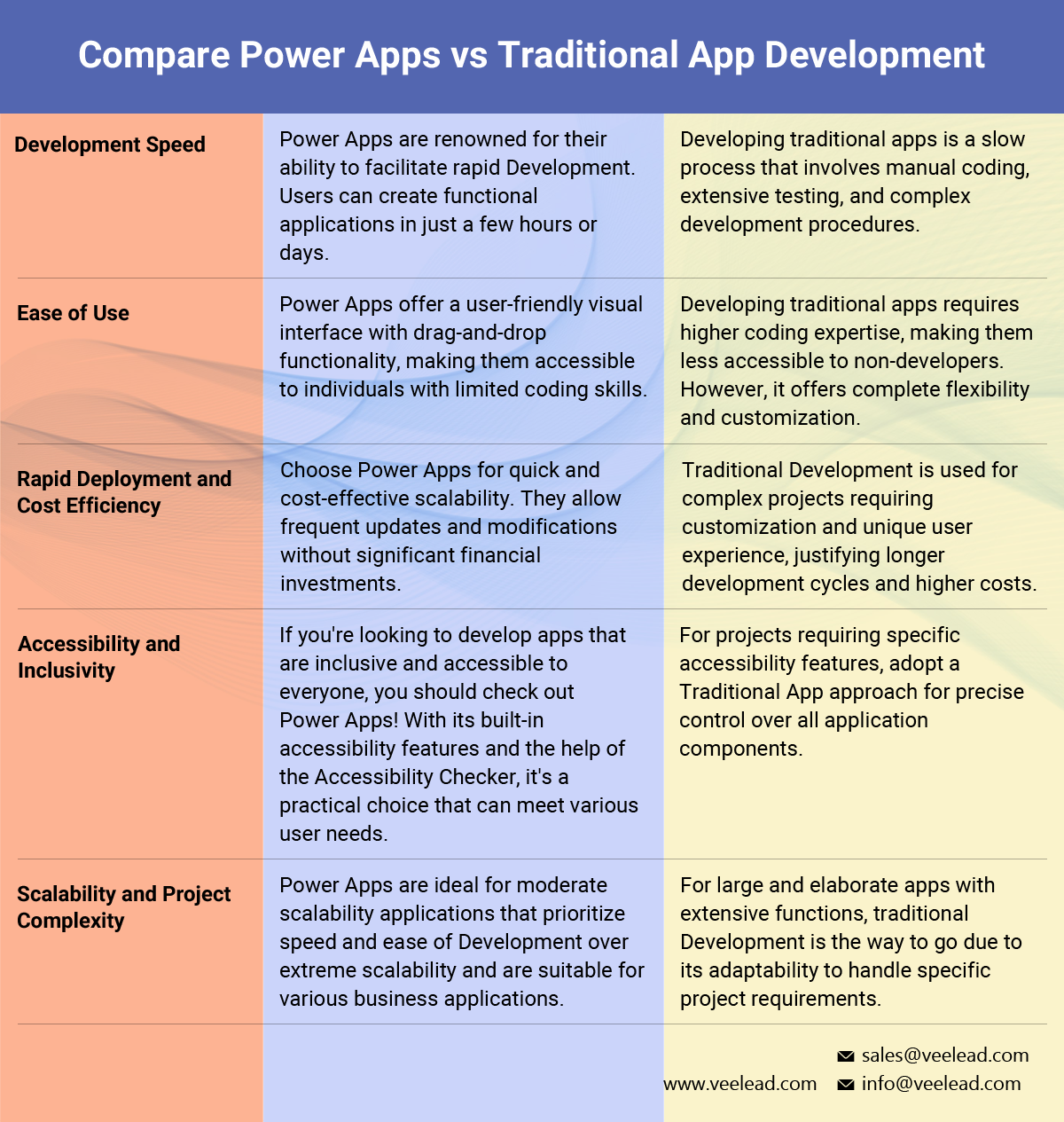

In today’s business world, companies need efficient data management and scalable solutions to stay ahead. Two main approaches have emerged as the top contenders: Traditional app development and Microsoft Power Apps.
Power Apps
Power Apps by Microsoft lets you easily create custom business apps using low-code and high-productivity techniques. It connects with various data sources, such as Excel, SharePoint, and SQL Server, to automate tasks and streamline business processes, removing the need for extensive coding knowledge.
Traditional App Development
Traditional app development involves writing code from scratch using programming languages like Java, C#, Python, or Swift to build applications for specific platforms like mobile, web, or desktop.
Compare Power Apps vs Traditional App Development
Using Microsoft Power Apps or traditional development methods depends on the project’s needs. Here’s a comprehensive guide to help you decide.

Conclusion
Developing a standard app or utilizing Microsoft Power Apps depends on specific project requirements. Power Apps are ideal for frequent updates and seamless integration within the Microsoft ecosystem, while traditional Development is better for complex systems and unique user experiences. Companies should consider cost, speed, customization, and integration before deciding. For those interested in Power Apps, Veelead is a recommended development partner with expertise in PowerApps development.

